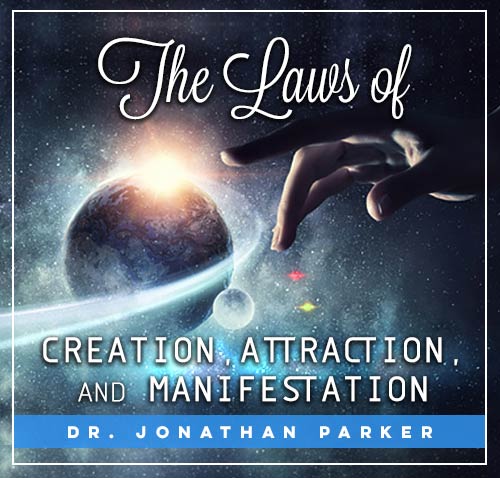What is the law of attraction toxic positivity?

Looking for more amazing products? Check out our online store and explore our collection here! Happy shopping!
Before diving in, please note: This post is for informational purposes only. If you’d like to know more about how we approach topics, feel free to check out our friendly Disclaimer Page.
Hey there, amazing readers! 
We’re committed to delivering quality posts, and your support (even just sticking around despite the ads) means everything to us. So, bear with us, and thanks for helping us keep the good vibes rolling. Now, on to the fun stuff!
TRANSLATE BUTTON AT THE END OF THE ARTICLE
Overview
The Law of Attraction is a popular belief that focuses on the power of positive thinking and the idea that like attracts like.
It suggests that by visualizing and manifesting positive thoughts, individuals can attract positive experiences and outcomes into their lives.
While the Law of Attraction can be a helpful tool for personal growth and self-improvement, there is a concept known as "toxic positivity" that can have negative effects on mental well-being.
This article aims to explore what toxic positivity is, understand its concept and effects, identify its signs in daily life, discuss the negative consequences of embracing it, and provide strategies for finding a balance between positivity and realism.
What is the Law of Attraction Toxic Positivity?
Toxic positivity refers to the excessive emphasis on positive thinking and the denial or invalidation of negative emotions and experiences.
It involves the belief that one should always maintain a positive mindset, regardless of the circumstances or challenges faced.
While positive thinking can be beneficial, toxic positivity overlooks the necessity of acknowledging and processing negative emotions.
It can lead to the suppression of authentic feelings and create a culture of emotional invalidation, where individuals feel pressured to always put on a happy face.
Understanding the Concept and Effects of Toxic Positivity
Toxic positivity can have detrimental effects on mental well-being.
By denying or ignoring negative emotions, individuals may become disconnected from their true feelings, leading to emotional suppression and a lack of self-awareness.
This can hinder personal growth and prevent individuals from addressing underlying issues.
Furthermore, toxic positivity may create unrealistic expectations, as it promotes the idea that positive thinking alone can solve all problems.
When these expectations are not met, individuals may experience feelings of failure or inadequacy.
Identifying the Signs of Toxic Positivity in Daily Life
Recognizing the signs of toxic positivity is crucial in order to avoid its negative effects.
Some common signs include:
Minimizing or dismissing negative emotions: When someone responds to your struggles or challenges with phrases like "just think positive" or "don’t dwell on the negative," it may indicate a lack of empathy and understanding.
Ignoring or invalidating others’ experiences: If someone consistently downplays or ignores the hardships others are going through, it can be a sign of toxic positivity.
This behavior dismisses the validity of their emotions and experiences.
Avoidance of difficult conversations: People embracing toxic positivity often try to avoid discussing or addressing negative experiences or emotions, preferring to focus solely on positive aspects.
The Negative Consequences of Embracing Toxic Positivity
Embracing toxic positivity can have severe negative consequences on individuals’ mental and emotional well-being.
By constantly suppressing or denying negative emotions, individuals may experience increased stress, anxiety, and even depression.
The pressure to maintain a positive facade can lead to feelings of guilt or shame when negative emotions inevitably arise.
Additionally, toxic positivity can hinder personal growth and prevent individuals from seeking appropriate support or solutions for their problems.
Balancing Positivity and Realism: Healthy Approaches
Finding a balance between positivity and realism is crucial for maintaining mental well-being.
Here are some strategies to cultivate a healthy approach:
Embrace all emotions: Acknowledge and accept the full range of emotions, both positive and negative.
Allow yourself to feel and express them in a healthy way, without judgment or suppression.
Explore the Path to Spirituality and Enlightenment – Start Here.

Practice self-compassion: Treat yourself with kindness and understanding when experiencing negative emotions.
Remember that it is normal to have ups and downs, and that your worth is not defined by constant positivity.
Foster genuine connections: Surround yourself with people who support and validate your emotions.
Seek out relationships where you can have honest conversations and share both positive and negative experiences without judgment.
Practice mindfulness: Cultivate present-moment awareness and non-judgmental observation of your thoughts and emotions.
This can help you develop a deeper understanding of yourself and avoid getting caught up in toxic positivity.
Set realistic expectations: Understand that life has its challenges and setbacks.
Embrace a realistic perspective that acknowledges both positive and negative aspects, allowing for a more balanced approach to life.
Practicing Authenticity and Emotional Well-Being
Promoting authenticity and emotional well-being involves embracing the full spectrum of emotions, acknowledging and validating both positive and negative experiences.
By cultivating self-awareness and practicing self-compassion, individuals can develop healthier approaches to dealing with challenges and hardships.
Remember that true well-being comes from accepting and honoring your emotions, rather than trying to suppress or deny them.
Conclusion
While the Law of Attraction can be a powerful tool for personal growth, it is important to be aware of the concept of toxic positivity and its potential negative effects.
By recognizing the signs of toxic positivity, understanding its consequences, and embracing a balanced approach to positivity and realism, individuals can foster emotional well-being and authenticity.
Remember to prioritize self-compassion, genuine connections, and the acceptance of all emotions in order to cultivate a healthier and more fulfilling life.

The Enlightenment Journey is a remarkable collection of writings authored by a distinguished group of experts in the fields of spirituality, new age, and esoteric knowledge.
This anthology features a diverse assembly of well-experienced authors who bring their profound insights and credible perspectives to the forefront.
Each contributor possesses a wealth of knowledge and wisdom, making them authorities in their respective domains.
Together, they offer readers a transformative journey into the realms of spiritual growth, self-discovery, and esoteric enlightenment.
The Enlightenment Journey is a testament to the collective expertise of these luminaries, providing readers with a rich tapestry of ideas and information to illuminate their spiritual path.
Our Diverse Expertise
While our primary focus is on spirituality and esotericism, we are equally passionate about exploring a wide range of other topics and niches 

To ensure we provide the most accurate and valuable insights, we collaborate with trusted experts in their respective domains 
Our blog originally focused on spirituality and metaphysics, but we’ve since expanded to cover a wide range of niches. Don’t worry—we continue to publish a lot of articles on spirituality! Frequently visit our blog to explore our diverse content and stay tuned for more insightful reads.
Hey there, amazing reader! 
Check out our store here and take a peek at some of our featured products below! Thanks for being awesome!













